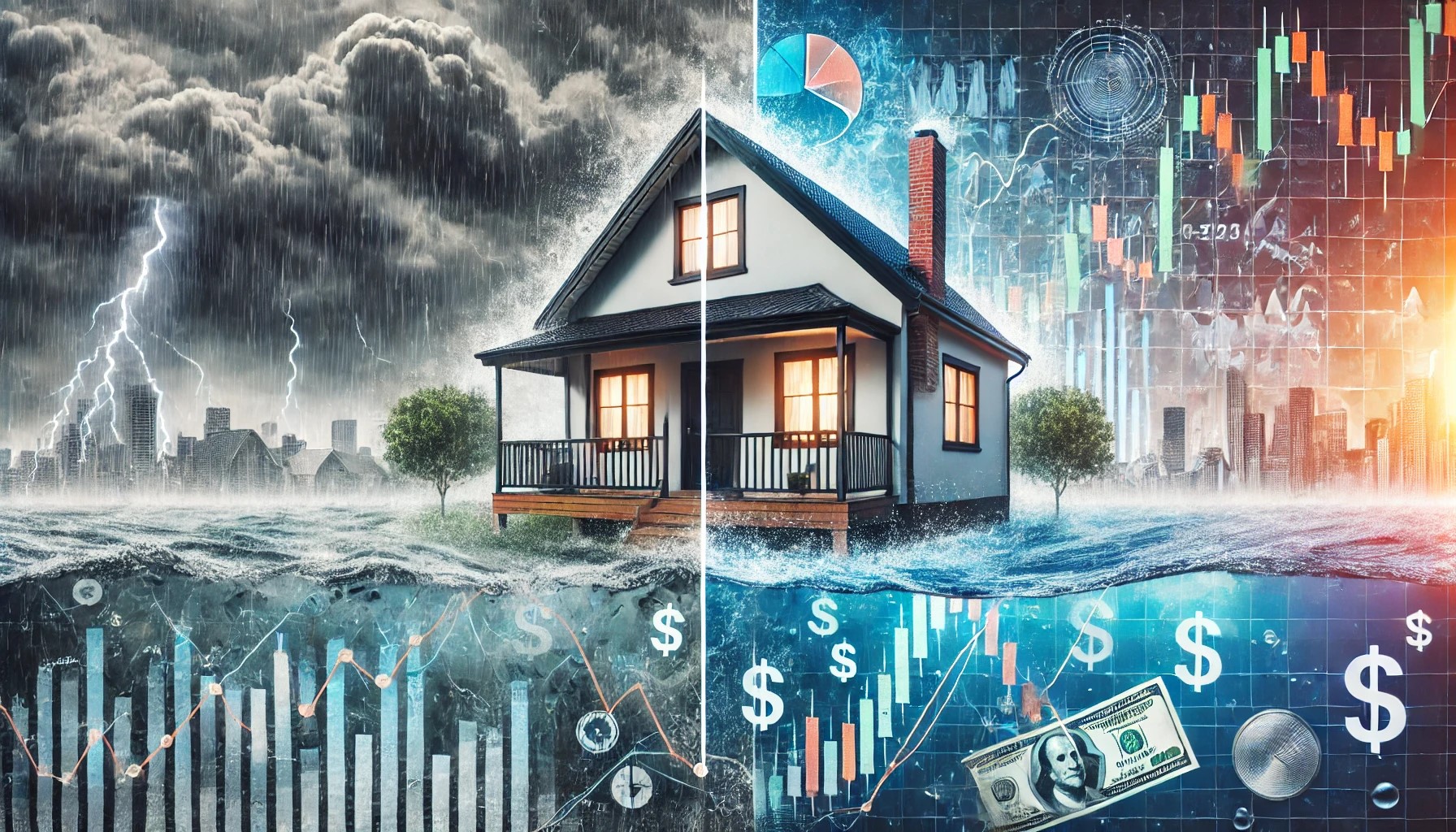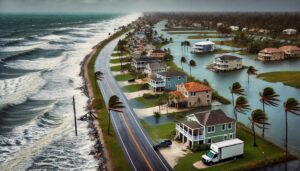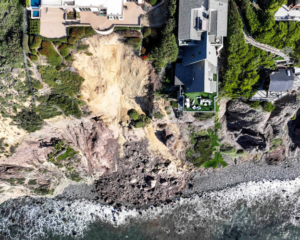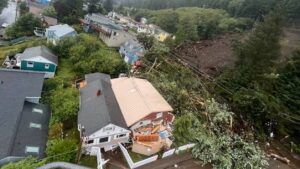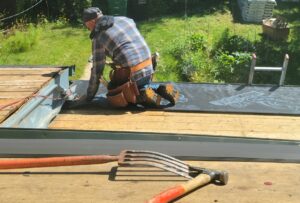Why Real Estate Investing is Riskier Than Ever: Navigating the New Era of Climate Volatility
The real estate market has long been seen as a stable and rewarding investment opportunity. However, the landscape has shifted dramatically over the last decade. With the increasing frequency and severity of climate-related events, real estate investing now carries unprecedented risks that demand a proactive and informed approach.
The New Realities of Real Estate Investing
Climate Risks Are No Longer Optional Considerations
Ten years ago, climate risks were often an afterthought for many real estate investors. Today, they’ve become central to evaluating a property’s long-term viability. Events like hurricanes, wildfires, and flash floods are no longer rare occurrences—they are becoming the norm, threatening the stability of both individual properties and entire markets.
For instance, properties in coastal areas now face rising sea levels and more frequent storm surges, while inland properties contend with unpredictable weather patterns, heat waves, and water scarcity. These risks not only pose physical threats but also carry financial consequences that can upend traditional investment models.
What Investors Need to Keep in Mind
Understand the Risks
Every property faces unique risks influenced by its location, topography, and construction. While a decade ago, investors might have focused primarily on market trends and financial metrics, today’s investments require a deep dive into climate data.
Questions to ask:
- What are the specific climate risks for this property?
- How do these risks evolve over time?
- Are there emerging threats that could impact this area?
- What are the financial implications of the different types of risk?
Platforms like Quoll Intelligence can help investors identify risks with precision by analyzing property-specific data and advanced climate modeling.
Evaluate the Costs
Beyond the initial purchase price, today’s real estate investors must consider the rising costs associated with climate volatility:
- Insurance Premiums: High-risk areas often come with skyrocketing premiums or even properties that are no longer insurable.
- Operating Expenses: Regular maintenance costs increase as properties require more upkeep to remain resilient.
- Emergency Reserves: Unexpected repairs due to climate events can drain cash reserves and eat into profits.
A property’s financial viability depends not just on its revenue potential but also on its ability to withstand these escalating expenses.
Plan for Mitigation
Mitigation isn’t just about protecting a property from physical damage—it’s also about safeguarding its financial performance. Proactive resilience projects can lower ownership costs, increase a property’s value, and broaden its appeal to future buyers.
Examples of mitigation strategies:
- Installing drainage systems to manage flooding.
- Reinforcing structures to withstand severe weather.
- Upgrading HVAC systems for energy efficiency in extreme temperatures.
Quoll’s analytics provide tailored recommendations for property-specific resilience improvements, helping investors make informed decisions about where to focus their efforts.
Leverage Tools for Actionable Insights
The sheer volume of data available today can be overwhelming. Generalized reports at the county or regional level often fail to capture the unique risks and opportunities of individual properties. Platforms like Quoll bridge this gap by:
- Combining climate science with detailed property data.
- Translating risks into financial impact projections.
- Identifying mitigation strategies that align with ROI goals.
By integrating these insights into your investment process, you can make data-driven decisions that account for both physical and financial risks.
The Stakes Are Higher Than Ever Before
The financial consequences of ignoring climate risks are more severe than ever. Rising insurance costs, uninsurable properties, and declining market liquidity are just a few of the challenges that investors face. In addition, climate volatility impacts entire communities, reducing demand in areas deemed too risky for long-term ownership.
For example, properties in wildfire-prone regions of California have seen declining market interest, while coastal properties in Florida face increasing scrutiny over their ability to withstand hurricanes and rising sea levels. These shifts in buyer sentiment are reshaping the real estate market, making it imperative for investors to stay ahead of the curve.
Take Action in a Changing World
Climate volatility doesn’t just affect the physical structure of a property—it reshapes the financial landscape of real estate investing. To navigate this new era, investors must adopt a proactive approach:
- Understand the Risks: Conduct thorough climate risk assessments for each property.
- Evaluate the Costs: Account for rising expenses in your financial models.
- Plan for Mitigation: Implement resilience projects to lower risks and improve ROI.
- Leverage Property Intelligence Tools: Use platforms like Quoll to translate complex data into actionable insights.
By embracing these strategies, you can protect your investments, optimize costs, and achieve better financial outcomes—even in the face of uncertainty.
Real estate investing has always been about managing risk and maximizing return. In today’s world, climate volatility has added a new layer of complexity. By integrating detailed risk assessments and resilience planning into your decision-making process, you can turn challenges into opportunities and stay ahead in an increasingly unpredictable market.
Get started today by setting up your free account and searching for your first property.

